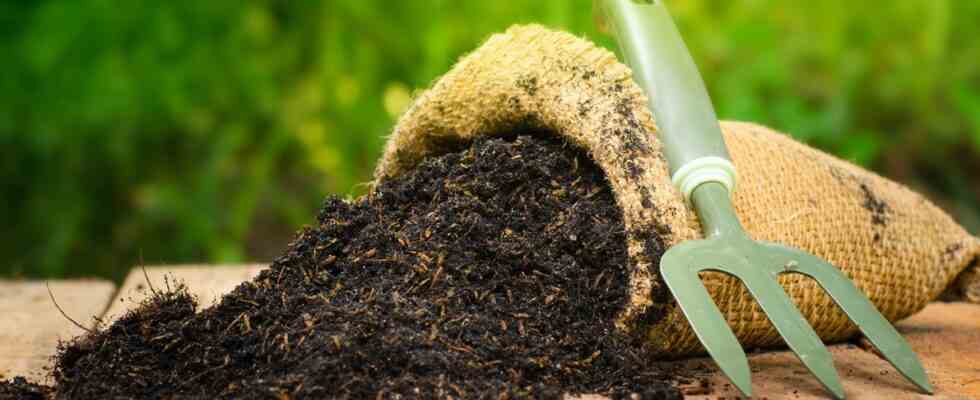The qualities of a soil for seedlings
the special sowing soil must meet certain criteria for offer the best conditions to the seeds to germinate and to the small plants to develop and provide them with all the nutrients they need.
Nutrient richness
The substrate for sowing must be particularly rich in nutrients, because although during germination and during the first phases of the development of the seedling, the nutrients are drawn from the reserves contained in the seed, the roots quickly begin to draw nutrients from the substrate. The latter must therefore provide a sufficient quantity. Be sure, however, to avoid excessively rich substrates, because excess nitrogen can promote certain diseases and pest infestation.
The finesse
The soil for the seedlings absolutely must be fine to properly wrap the seeds and promote the rapid development of young roots. Sowing soil should therefore not contain no bulky debris such as wood fragments or pieces of bark and be free of any clods or stones. It must have as fine a grain size as possible and, if you have the choice in the garden centre, always choose the smallest values for this criterion.
Lightness
The special sowing soil should not be heavy, but on the contrary very light, because excess humidity is harmful to the germination of seeds and the development of small plants. Heavy soil can promote the rotting of sown seeds and rootlets or the rapid wilting of seedlings, because it is conducive to the development of bacteria and fungi that devastate the seedlings.
Pasteurization
Seedlings are delicate and susceptible to all types of pathogenic fungi and bacteria. He must therefore be sterilized to offer the guarantee of not containing any of these pathogens. Sterilized potting soil is particularly suitable for the sowing of vegetables and flowers, both in pots and in the ground.
The ability to retain water
The seedbed must also have an excellent ability to retain water to promote plant germination and development. In addition, by retaining water for a long time, this soil makes it possible to space out the waterings, which can only be beneficial for the plants.
Make your own special sowing soil
By concern for economy and ecology, many amateur and professional gardeners prefer to prepare their own special sowing soil. The savings thus achieved are, in fact, substantial, and the gardener avoids car journeys and the use of various packaging.
To prepare a seedbed, mix half a volume of sand or vermiculite, a quarter of a volume of garden soil, a quarter of a volume of peat or well-rotted compost. Choose compost, because peat is an environmentally unfriendly material whose extraction destroys entire natural areas every year. To give the soil the fine grain size that is best suited for sowing, it is necessary mix the three components wellthen sift using a rather fine sieve.
About the sterilizationit can be made in the conventional oven by putting the moist (but not soaked) potting soil in a pan covered with aluminum foil and heating in the oven at 82°C for about twenty minutes.
Buy it at a garden center
Those who do not have the time or the energy to make their own seedbeds or who fear poor results, it is still possible to buy some in garden centers or other specialized shops.
Sowing soil is, however, the most expensive of the soils, as it requires special treatment. It is generally offered at prices ranging from 10 to 20 euros per 20-litre bag. It is so good more expensive than universal potting soilbut the latter is unsuitable for seedlings, as it is heavy and contains larger elements such as fragments of wood which can interfere with germination or the development of seedlings.
Despite its high price, commercial sowing soil remains interesting, because the quantities you need for your seedlings are very small, especially if you sow in pots or containers, as is the case with most gardeners.
In stores, soil for seedlings contains up to 90% peat, which gives excellent quality substratesbut who are harmful to the environment. Therefore, favor potting soils for seedlings the mention “without peat”.
If you want to push your eco-responsible and environmentally friendly approach, you can opt for a peat-free and organic compost. The organic label makes it possible to be sure that the soil does not contain any fertilizers, pesticides or other synthetic chemicals. If you want to sow organic seeds, choosing organic soil is the first step to having an organic crop from start to finish, especially if you don’t plan to use any synthetic substances after replanting your seedlings in the ground.

